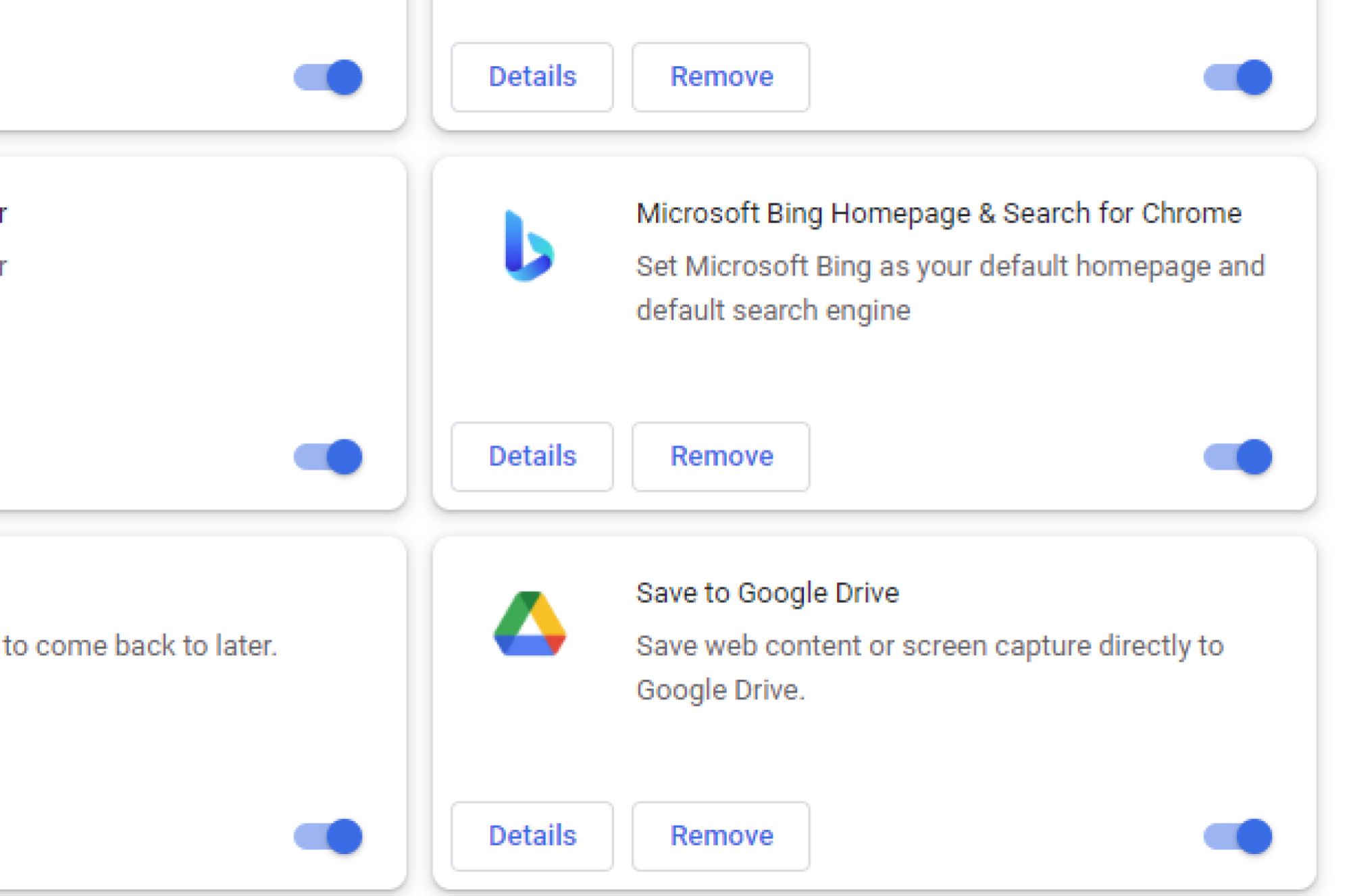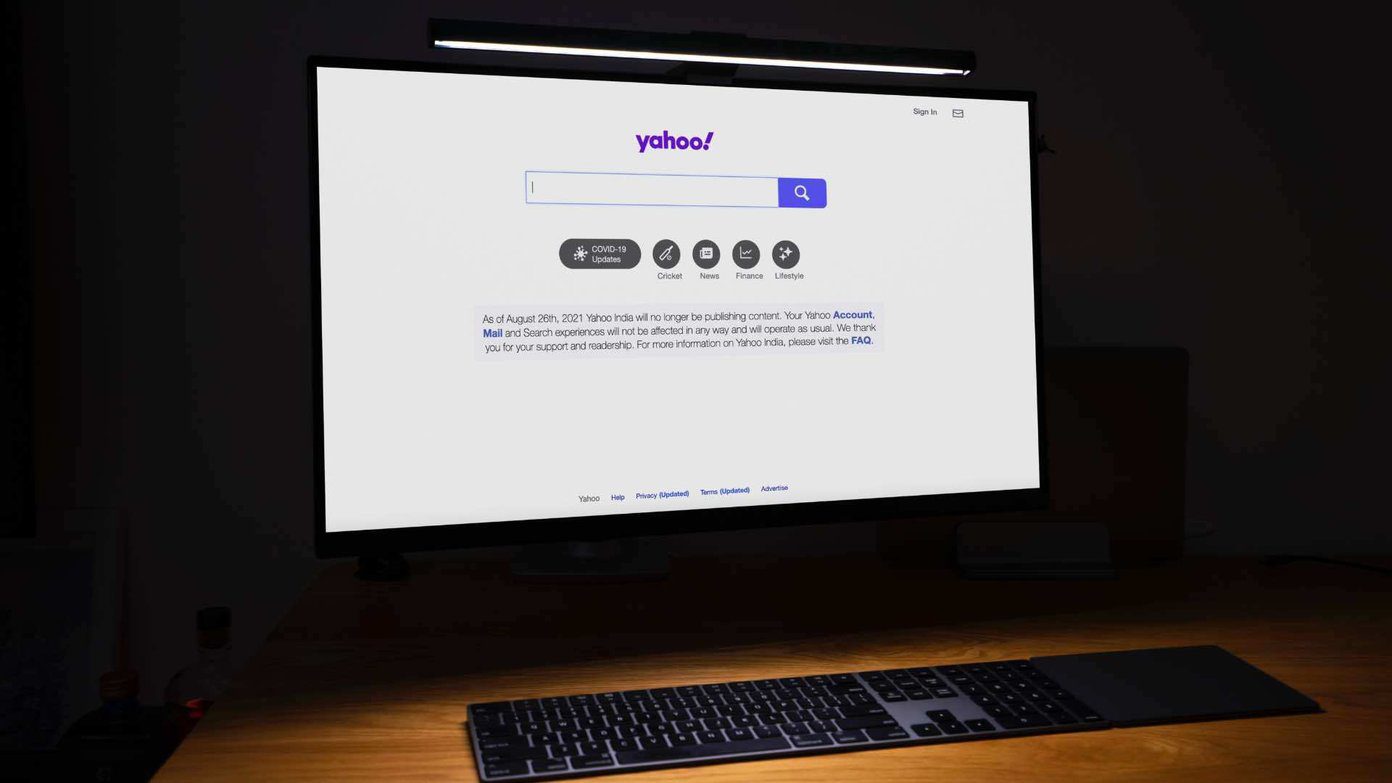Introduction
In the ever-evolving digital landscape, web browsers play a pivotal role in shaping our online experiences. From accessing information to connecting with others, browsers serve as the gateway to the vast realm of the internet. Among the multitude of browsers available, Google Chrome stands out as a popular choice, renowned for its user-friendly interface and robust features. However, recent developments have sparked curiosity and raised questions among users: Why is Bing opening in Chrome?
This unexpected occurrence has left many individuals puzzled, prompting a closer examination of the integration between Bing and Chrome. As users navigate the digital realm, they encounter various search engines, each vying for attention and usage. Google, with its ubiquitous presence, has long been synonymous with web searches, making the sudden appearance of Bing in Chrome a noteworthy phenomenon.
The integration of Bing into Chrome has sparked discussions and debates within the tech community, igniting curiosity about the implications and motivations behind this unexpected collaboration. As users grapple with the implications of Bing's presence in Chrome, it becomes imperative to delve into the intricacies of this integration and explore its potential impact on the browsing experience.
Amidst the intrigue and speculation surrounding Bing's integration with Chrome, it is essential to unravel the underlying reasons and implications of this development. By delving into the intricacies of this integration, users can gain a deeper understanding of the dynamics at play and the potential implications for their browsing experience. Let's embark on a journey to unravel the mysteries behind Bing's unexpected appearance in Chrome and explore the implications and motivations driving this integration.
Bing's Integration with Chrome
The integration of Bing with Chrome has sparked a wave of curiosity and speculation among users, prompting a closer examination of this unexpected collaboration. As users navigate the digital realm, they are accustomed to the seamless functionality of web browsers, each offering a distinct set of features and integrations. Google Chrome, known for its user-friendly interface and robust performance, has garnered a loyal user base over the years. However, the recent emergence of Bing within the Chrome browser has left many users intrigued and eager to understand the rationale behind this integration.
The integration of Bing with Chrome represents a strategic move aimed at expanding the search engine options available to users within the browser. Traditionally, Google has been the default search engine within Chrome, reflecting the close relationship between the browser and the search giant. However, the inclusion of Bing as an alternative search engine within Chrome signifies a shift in the browsing landscape, offering users a broader spectrum of search options directly within the browser interface.
This integration also reflects the evolving dynamics of competition within the tech industry, as search engines vie for user engagement and market share. By integrating Bing into Chrome, users are presented with a choice, allowing them to opt for Bing as their preferred search engine within the familiar Chrome environment. This move not only diversifies the search options available to users but also introduces healthy competition, compelling search engines to continually enhance their offerings to cater to user preferences.
Furthermore, the integration of Bing with Chrome underscores the importance of user choice and customization within the browsing experience. By providing users with the flexibility to choose their preferred search engine, Chrome empowers individuals to tailor their browsing experience to align with their preferences and needs. This emphasis on user choice reflects a user-centric approach, acknowledging the diverse preferences and requirements of users as they navigate the digital landscape.
Moreover, the integration of Bing within Chrome serves as a testament to the collaborative nature of the tech industry, where partnerships and integrations pave the way for enhanced user experiences. By fostering collaborations between browsers and search engines, users stand to benefit from a more enriched and personalized browsing experience, characterized by a diverse array of search options and seamless functionality.
In essence, Bing's integration with Chrome signifies a strategic move aimed at diversifying search options, empowering users with choice, and fostering a collaborative ecosystem within the tech industry. This integration not only reflects the evolving dynamics of competition but also underscores the commitment to enhancing user experiences within the digital realm. As users navigate the integrated Bing experience within Chrome, they are presented with a myriad of search options, reflecting a user-centric approach that prioritizes choice and customization.
Benefits of Bing Opening in Chrome
The integration of Bing within the Chrome browser brings forth a multitude of benefits, enriching the browsing experience and offering users newfound flexibility and choice. This unexpected collaboration between Bing and Chrome has far-reaching implications, presenting users with a diverse array of advantages that enhance their browsing journey.
1. Enhanced Search Options
The integration of Bing within Chrome expands the spectrum of search options available to users, providing an alternative to the traditional default search engine. This diversification empowers users to explore and leverage the unique features and functionalities offered by Bing, catering to diverse search preferences and requirements.
2. User Choice and Customization
By integrating Bing into Chrome, users are bestowed with the freedom to choose their preferred search engine, aligning the browsing experience with their individual preferences. This emphasis on user choice underscores Chrome's commitment to empowering users with the flexibility to tailor their browsing journey according to their unique needs and inclinations.
3. Healthy Competition
The inclusion of Bing within Chrome introduces healthy competition within the browsing landscape, compelling search engines to continually innovate and enhance their offerings to captivate user engagement. This competitive dynamic fosters an environment where search engines strive to deliver optimal experiences, ultimately benefiting users through improved search functionalities and features.
4. Collaborative Ecosystem
The integration of Bing within Chrome exemplifies the collaborative nature of the tech industry, where partnerships and integrations pave the way for enriched user experiences. This collaborative ecosystem fosters a seamless integration of search functionalities within the browser, enhancing the overall browsing experience for users.
5. Personalized Browsing Experience
With Bing integrated into Chrome, users can personalize their browsing journey by opting for their preferred search engine. This personalization aligns with the diverse needs and preferences of users, offering a tailored browsing experience that resonates with individual requirements and inclinations.
6. Expanded Feature Set
The integration of Bing within Chrome introduces users to a diverse set of features and functionalities offered by Bing, enriching the search experience and providing access to unique tools and resources that complement the browsing journey.
In essence, the integration of Bing within Chrome heralds a new era of browsing experiences, characterized by enhanced search options, user empowerment, healthy competition, collaborative ecosystems, personalized experiences, and an expanded feature set. This unexpected collaboration between Bing and Chrome not only diversifies the browsing landscape but also underscores a user-centric approach that prioritizes choice, customization, and enriched experiences. As users navigate the integrated Bing experience within Chrome, they are presented with a myriad of benefits that elevate their browsing journey and reflect the commitment to enhancing user experiences within the digital realm.
Potential Concerns
The integration of Bing within Chrome, while heralding a myriad of benefits, also raises potential concerns that warrant attention and consideration. As users navigate the integrated Bing experience within Chrome, certain apprehensions may emerge, prompting a closer examination of the implications and challenges associated with this unexpected collaboration.
-
User Preference Dissonance: One potential concern revolves around the divergence in user preferences regarding search engines. While the integration of Bing within Chrome offers users a choice, it may lead to dissonance among individuals accustomed to the default search engine. Users may encounter challenges in adapting to the presence of Bing within the familiar Chrome environment, potentially disrupting their browsing experience.
-
Data Privacy and Security: The integration of Bing within Chrome raises concerns related to data privacy and security. Users may express apprehensions regarding the handling of their search data and personal information, particularly when utilizing a search engine that differs from the default option. Ensuring robust data protection measures and transparent privacy policies becomes imperative to address these concerns and instill confidence among users.
-
Search Quality and Relevance: Another potential concern pertains to the quality and relevance of search results delivered by Bing within Chrome. Users may question the efficacy of Bing's search algorithms and the accuracy of search outcomes, especially when compared to their familiarity with the default search engine. Addressing these concerns necessitates a focus on optimizing search quality and relevance to align with user expectations and preferences.
-
Integration Impact on Browser Performance: The integration of Bing within Chrome may raise concerns regarding its impact on browser performance. Users may express apprehensions about potential lags, resource consumption, or compatibility issues arising from the inclusion of an additional search engine. Ensuring seamless integration and minimal disruption to browser performance becomes crucial to mitigate these concerns.
-
User Experience Consistency: The integration of Bing within Chrome prompts concerns related to the consistency of the user experience. Users may seek reassurance that the inclusion of Bing does not compromise the familiar interface and functionalities of Chrome. Maintaining a seamless and consistent user experience across search engines becomes essential to alleviate these concerns and uphold user satisfaction.
In essence, while the integration of Bing within Chrome offers a spectrum of benefits, it also gives rise to potential concerns related to user preferences, data privacy, search quality, browser performance, and user experience consistency. Addressing these concerns through transparent communication, robust privacy measures, optimization of search functionalities, and seamless integration becomes imperative to foster user confidence and ensure a harmonious browsing experience within the integrated Bing environment.
Conclusion
The integration of Bing within Chrome marks a significant milestone in the ever-evolving landscape of web browsers and search engines. This unexpected collaboration has ushered in a new era of browsing experiences, characterized by enhanced search options, user empowerment, healthy competition, collaborative ecosystems, personalized experiences, and an expanded feature set. As users navigate the integrated Bing experience within Chrome, they are presented with a myriad of benefits that elevate their browsing journey and reflect the commitment to enhancing user experiences within the digital realm.
While the integration of Bing within Chrome brings forth a multitude of advantages, it also raises potential concerns related to user preferences, data privacy, search quality, browser performance, and user experience consistency. Addressing these concerns through transparent communication, robust privacy measures, optimization of search functionalities, and seamless integration becomes imperative to foster user confidence and ensure a harmonious browsing experience within the integrated Bing environment.
As the tech industry continues to evolve, partnerships and integrations between browsers and search engines pave the way for enriched user experiences, reflecting a user-centric approach that prioritizes choice, customization, and enhanced functionalities. The integration of Bing within Chrome underscores the dynamic nature of the digital landscape, where collaboration and innovation converge to shape the browsing experiences of users worldwide.
In essence, the integration of Bing within Chrome represents a strategic move aimed at diversifying search options, empowering users with choice, and fostering a collaborative ecosystem within the tech industry. This integration not only reflects the evolving dynamics of competition but also underscores the commitment to enhancing user experiences within the digital realm. As users navigate the integrated Bing experience within Chrome, they are presented with a myriad of benefits that reflect a user-centric approach, prioritizing choice, customization, and enriched experiences.
The unexpected collaboration between Bing and Chrome has sparked curiosity, ignited discussions, and prompted a reevaluation of the browsing landscape. As users embrace the integrated Bing experience within Chrome, they embark on a journey characterized by enhanced search functionalities, user empowerment, and a diverse array of features, signaling a new chapter in the browsing experiences of users worldwide.

























